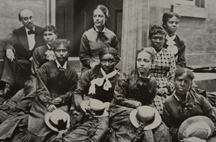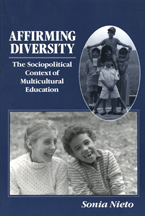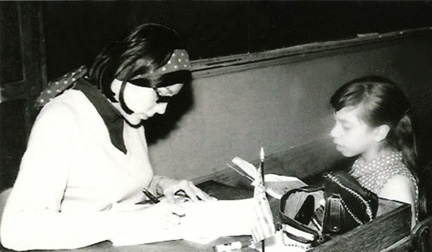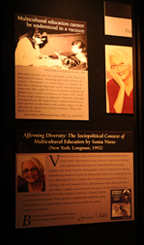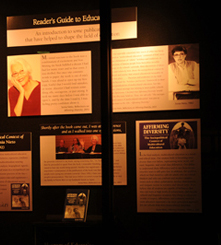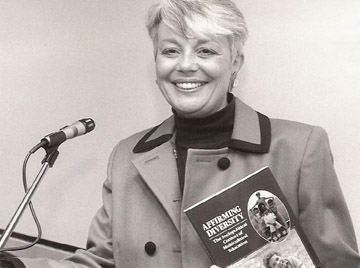Books of the 20th Century |
||||||||||||
|
|
|||||||||||
Scholars and Publications
|
|
|||||||||||
“Affirming Diversity was able to capture my thinking, my practice, and my values in a way that none of my previous talks, journal articles, or book chapters had ever done. It led to requests to write dozens of book chapters and journal articles, as well as the nine books that followed and the twenty in my Language, Culture, and Teaching series (Routledge). The number of invitations to be a keynote speaker, “distinguished lecturer,” and Visiting Professor skyrocketed and led me, within a few years, to visit almost every state in the nation, primarily at universities or in schools, as well as a number of countries. At this point in my life, I’ve spoken to groups as small as 10 and as large as 3,000. Without Affirming Diversity, I doubt I would have received the public recognition and the many awards I’ve been fortunate to receive, including 5 honorary doctorates, a residence at the Bellagio Center in Italy, and others. But as much as I’ve appreciated the public acclaim and am appreciative of the enormous recognition I’ve received for Affirming Diversity, the most gratifying result has come in the form of the many hundreds of personal comments, letters, and emails I have received from classroom teachers and other educators who’ve told me that the book changed them, changed how they think about teaching and society, and changed their practice. Some have even told me that the book encouraged them to remain in the field, and this has been the greatest gift I’ve received from writing it.” |
||||||||||||
From the Foreword by Jim Cummins: “Sonia Nieto’s book is the first I have read that provides a comprehensive framework for analyzing the multiple causes of school failure among subordinated groups of students and, on the basis of this analysis, suggests creative intervention strategies that are supported by research and theory… These strategies are labeled ‘multicultural education’ which is viewed as an umbrella term encompassing more specific programs and pedagogical orientations such as ‘bilingual education,’ ‘anti-racist education,’ ‘critical pedagogy,’ etc… Viewed in these terms, multicultural education… becomes a central and essential element in any consideration of education reform… Multicultural education as conceptualized here challenges all educators to make the schools a force for social justice in our society.” Affirming Diversity: The Sociopolitical Context of Multicultural Education by Sonia Nieto (New York: Longman, 1992). |
||||||||||||
|
||||||||||||
“Multicultural education cannot be understood in a vacuum but rather must be seen in its personal, social, historical, and political context. Assuming that multicultural education is ‘the answer’ to school failure is simplistic at best for it overlooks important social and education issues that affect daily the lives of students. Educational failure is too complex and knotty an issue to be ‘fixed’ by any single program or approach. However, if broadly conceptualized and implemented, multicultural education can have a substantive and positive impact on the educational experiences of most students. That is the thesis of this book.” Affirming Diversity: The Sociopolitical Context of Multicultural Education by Sonia Nieto (New York: Longman, 1992, pp. xxiii-xxiv).
|
||||||||||||
“In the final analysis, multicultural education is a moral and ethical issue. Our student body is becoming more diverse than ever before, representing more racial, cultural, linguistic, and social class differences. Our ability to understand these differences and to use them in constructive ways is still quite low. In addition, the world in which we find ourselves calls for adults who are critical thinkers and who can confront and resolve complex issues such as ethnic polarization, nuclear disarmament, and rampant racism in sensitive and ethical ways. If we believe that all students are capable of brilliance, that they can learn at high levels of achievement, and that the cultural and linguistic resources they bring to school are worthy of respect, affirmation, and solidarity, multicultural education represents a far more principled approach for our schools than does monocultural education.” Affirming Diversity: The Sociopolitical Context of Multicultural Education by Sonia Nieto (New York: Longman, 1992, p. 300). to return to the |
||||||||||||

an institutional member of the International Coalition of Sites of Conscience
Museumofed@gmail.com
